How one Member’s passion for quilting is spreading love and togetherness at CEF
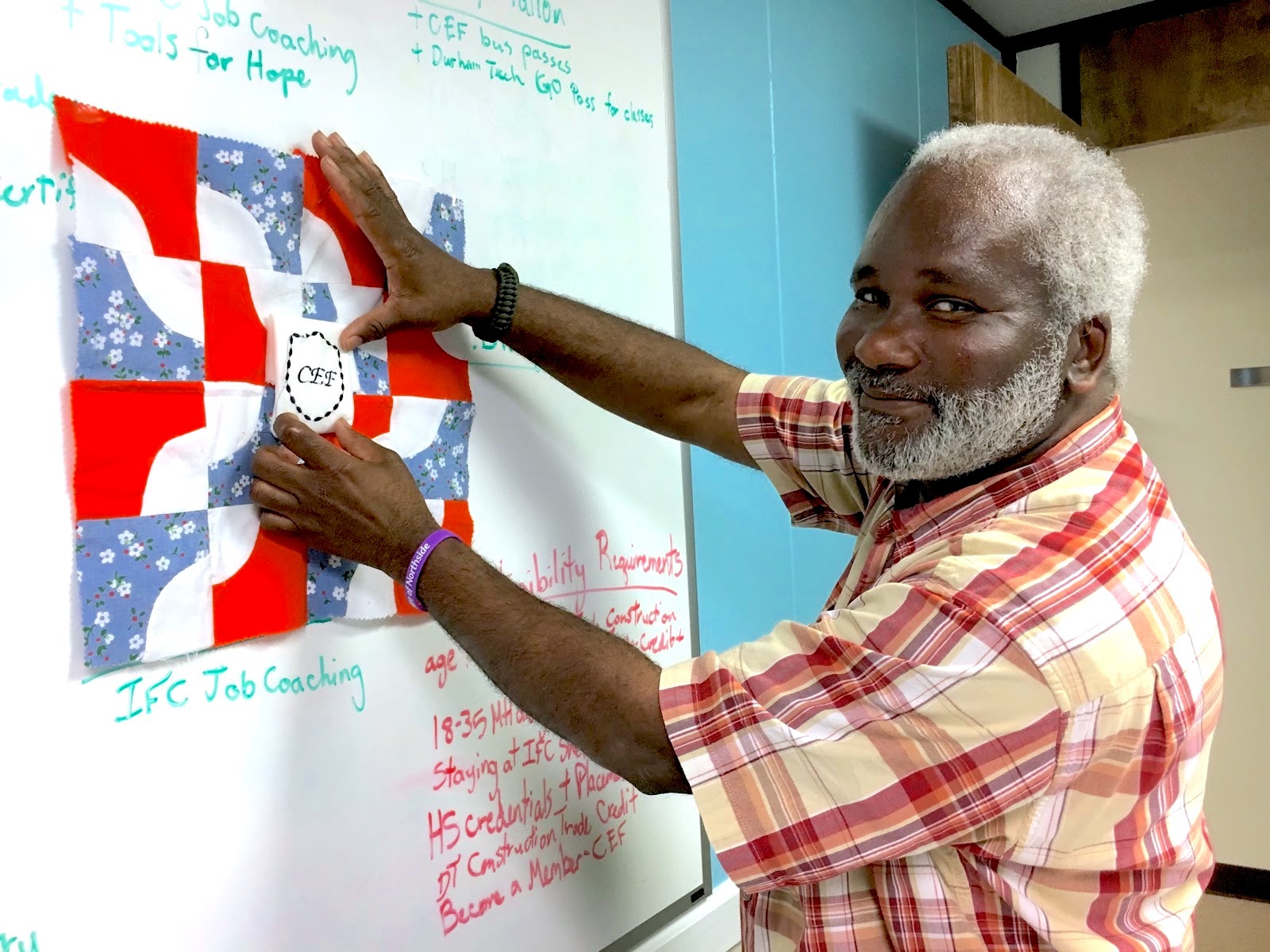
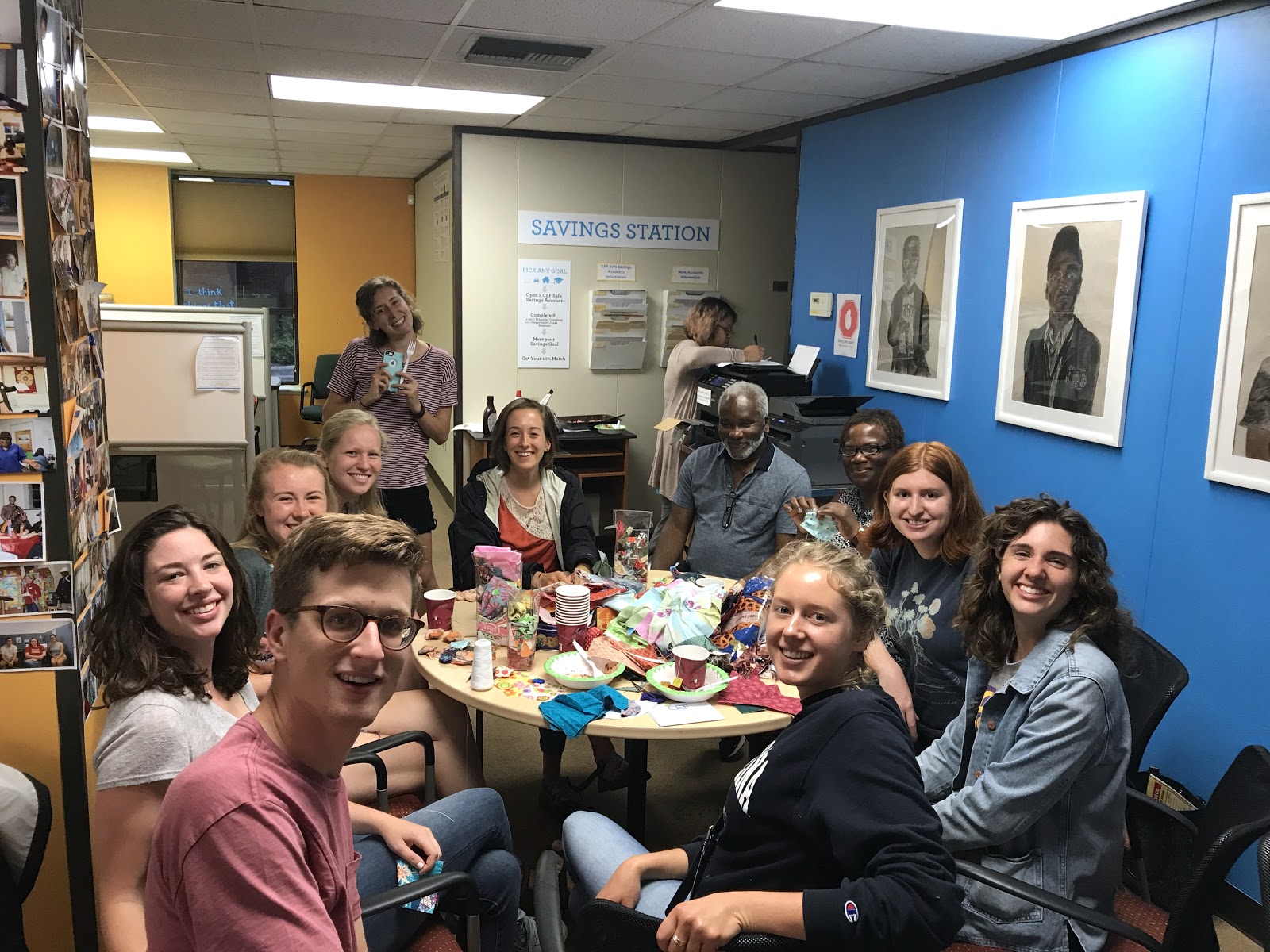
David believes that every quilt is an opportunity for connection. “Our society is losing that personal touch, and in that process of us making that quilt, if someone is bothered about something, we have the chance to talk about it.” Originally from Sanford, North Carolina, David moved to Chapel Hill last summer to receive better medical care for his sickness and quickly found himself without a place to stay. “I’ve never experienced homelessness until now.”
David’s passion for quilting is life long. “I have been quilting for 30 years or more. When I was young I couldn’t play outside too much, I used to sew my mother’s clothes and when I got older I took an industrial sewing class.”
David was initially connected to CEF through the IFC men’s shelter. “I wanted to see all I could about all the people around, and I found out about CEF the day during that time I was sick. He (his advocate Kevin) was just like a brother. What I did is a lot of the meetings, and during that time and I was going to Opportunity Class. I was just trying to get a feel for what things were going.” David also enjoys engaging in Talking Sidewalks and CEF’s Advocacy Choir, where he performed for the CEF TED Talk in Memorial Hall this past April. His weekly meetings with his Advocate Kevin, however, sometimes included searching for local quilting groups to join “I liked taking something you would throw away and making something beautiful.”
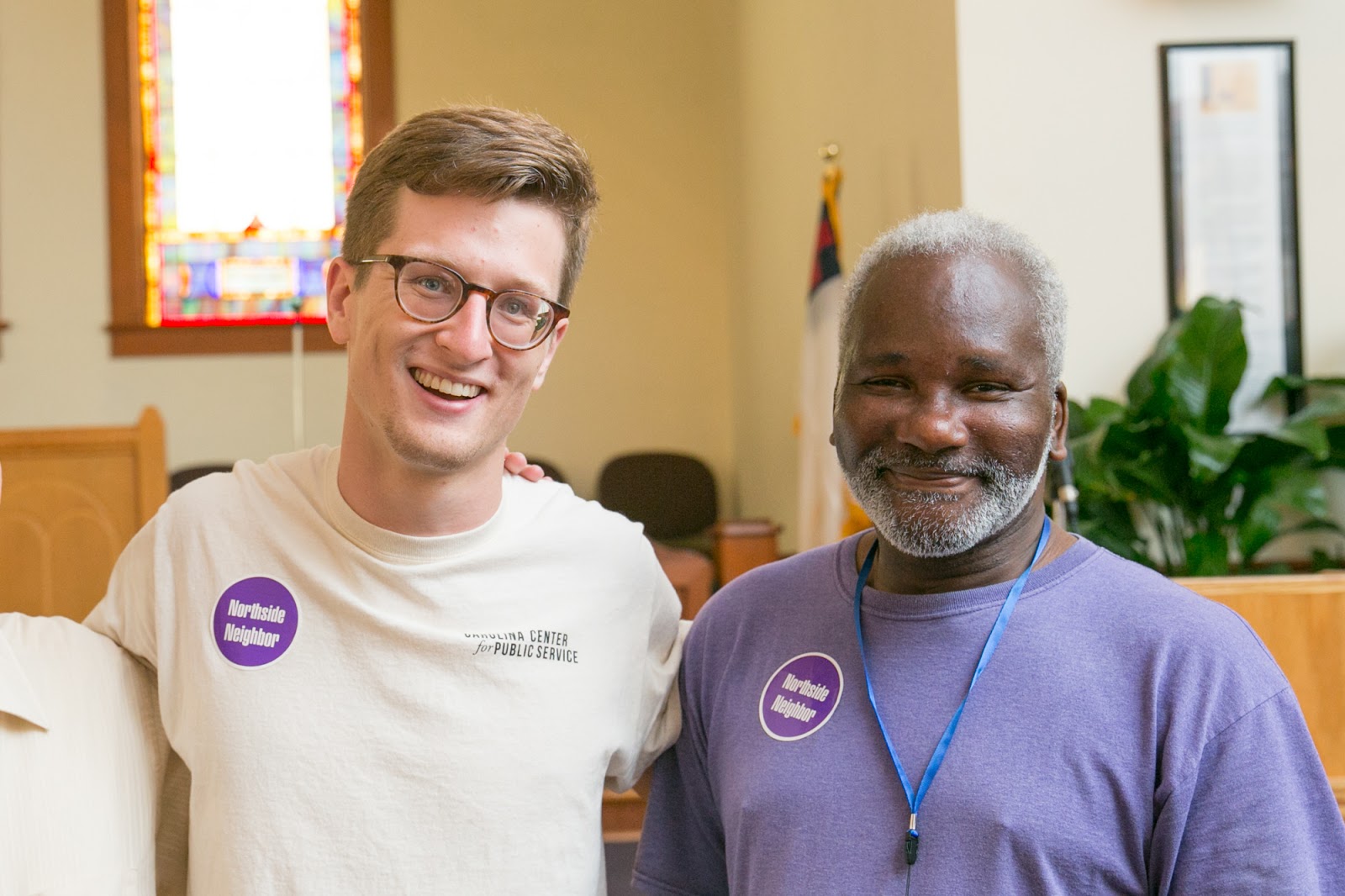
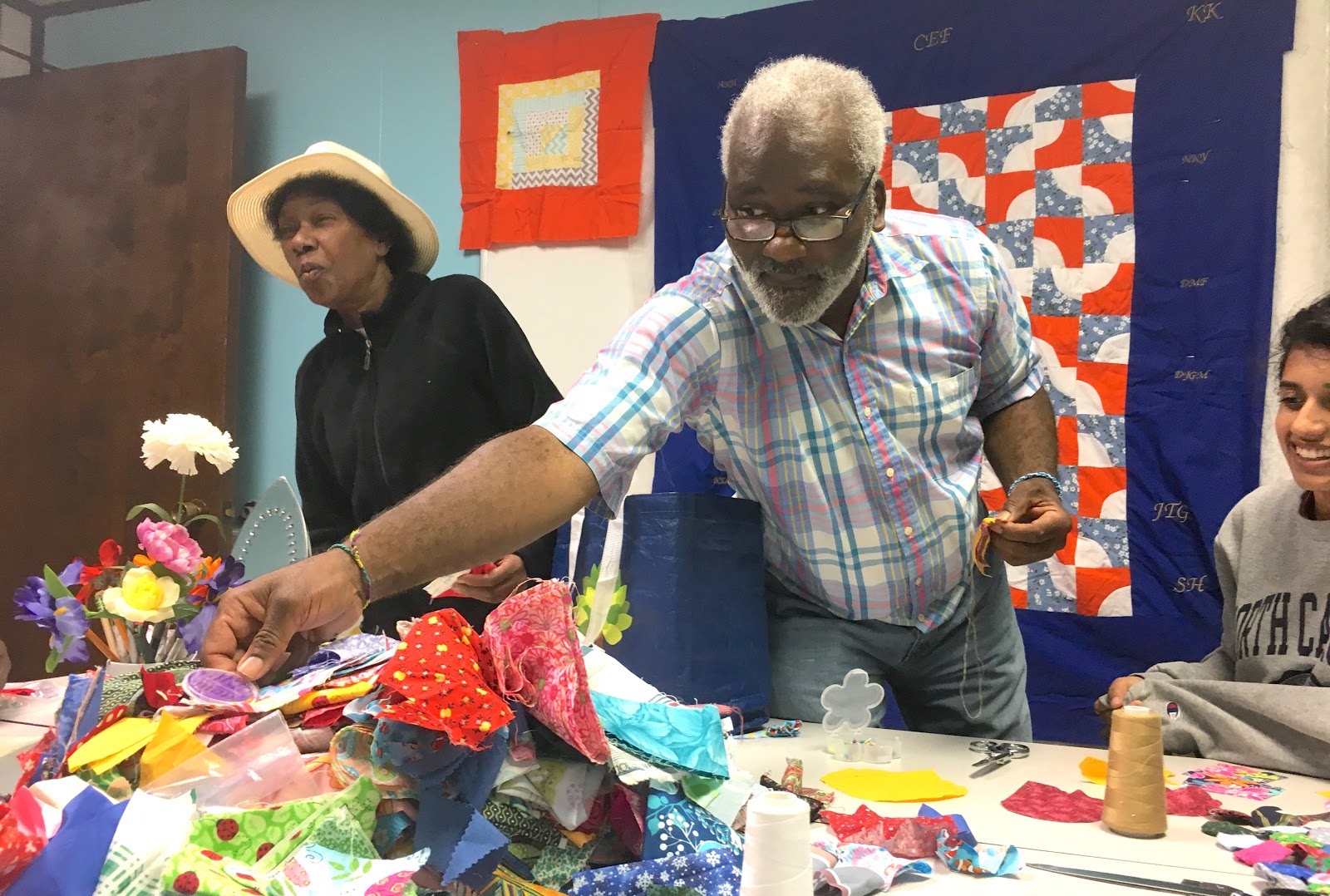
In February of 2017, David, alongside Kevin, launched the first ever Quilting Circle in the Chapel Hill office. The Quilting Circle allows Members and Advocates to enjoy a community that socializes, relaxes and celebrates each other. “The thing about old-fashioned quilting is that it takes everyone together in the circle to make it. Quilting forces us to talk to each other about things and, in turn, we start to form a strong bond.” Each week, that is exactly what Members and Advocates do, gathering in the CEF office for a collaborative craft and safe space to support and celebrate one another. David, who is currently staying in the shelter, provides all the fabric and supplies himself. He has successfully gotten some supplies donated through the Scrap Exchange in Durham. His quilting projects vary from week to week as he brings new projects to keep people interested and learning. “I just take everything and look at the goodness of it because you can turn everything around and make it pretty, Cause you know, everybody has faults, everyone has needs, everyone is human so live and let live.”
The first quilt is set to be put up in the office this summer. “This is my way of giving back for everything y’all have done for me. If it wasn’t for CEF in this moment, in this time, these people would not be able to come together and make something so beautiful.”
So what is David looking forward to? ”To be in my own place so I can keep on quilting. I am going to quilt and sew until the day I leave the earth.”
Sound amazing? Come to Quilting Circle any Thursday at 6:00pm in the Chapel Hill office and see for yourself! No experience necessary.






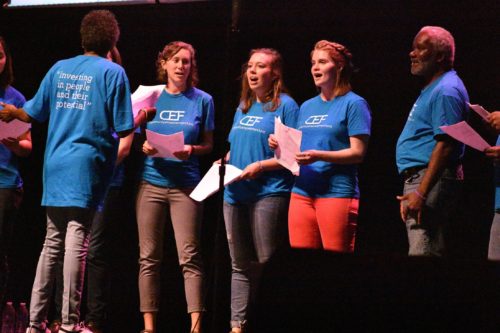
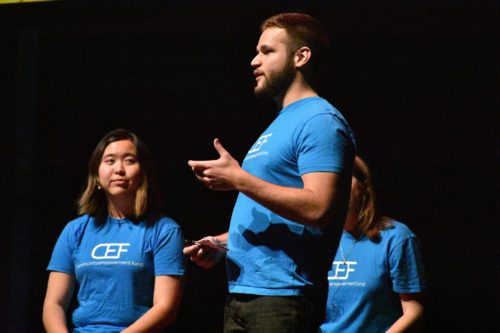
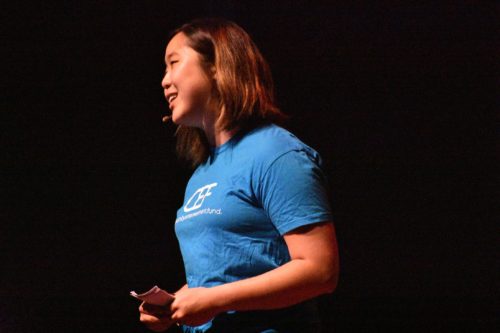
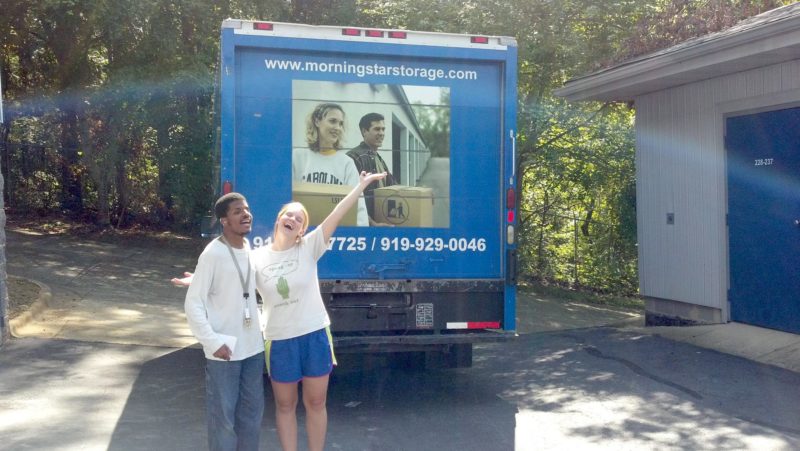
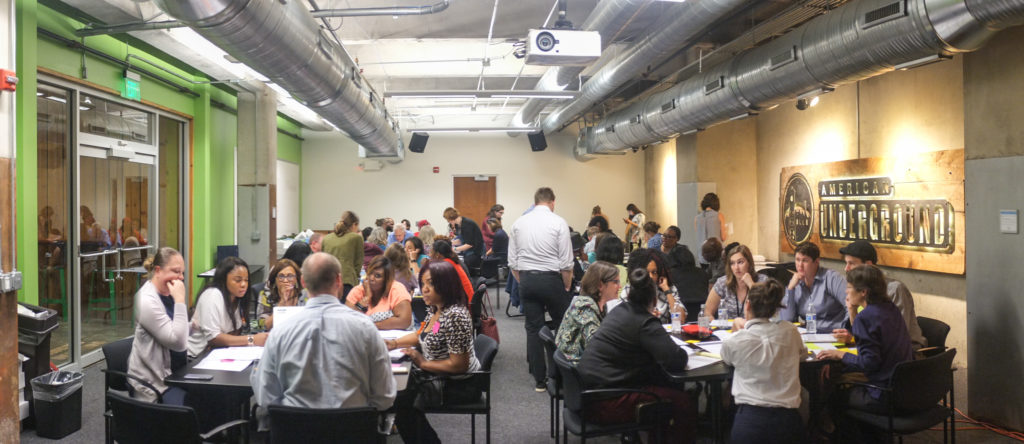
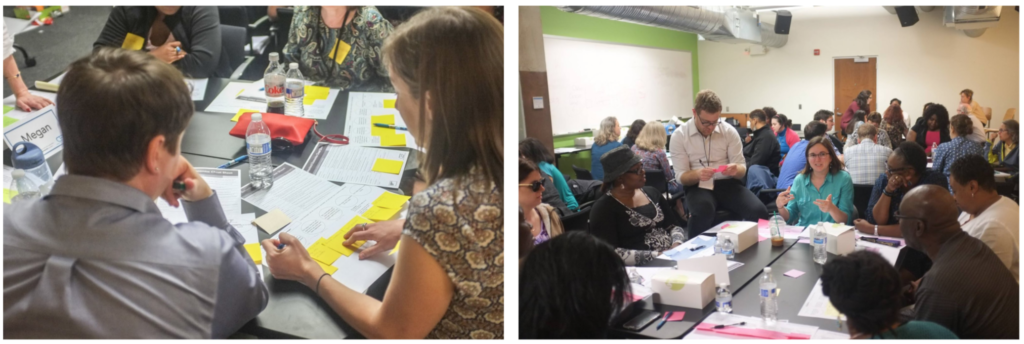 CEF is working with the Common Cent Labs this year to apply these learnings to our partnerships with shelters to promote increased engagement with CEF’s matched savings accounts in a way that supports Members in achieving short-term savings goals and builds longer-term saving habits. Through our last joint project with the team, we implemented a new way for Members to track progress towards their savings goals through a punchcard and tested its efficacy through a randomized control trial. Every time Members in the trial group made a deposit, they received a punch, and received gold tokens and new levels of punchcards after each card was filled. An article is soon to be published by the research documenting the promising results of this study… Just for a preview: “
CEF is working with the Common Cent Labs this year to apply these learnings to our partnerships with shelters to promote increased engagement with CEF’s matched savings accounts in a way that supports Members in achieving short-term savings goals and builds longer-term saving habits. Through our last joint project with the team, we implemented a new way for Members to track progress towards their savings goals through a punchcard and tested its efficacy through a randomized control trial. Every time Members in the trial group made a deposit, they received a punch, and received gold tokens and new levels of punchcards after each card was filled. An article is soon to be published by the research documenting the promising results of this study… Just for a preview: “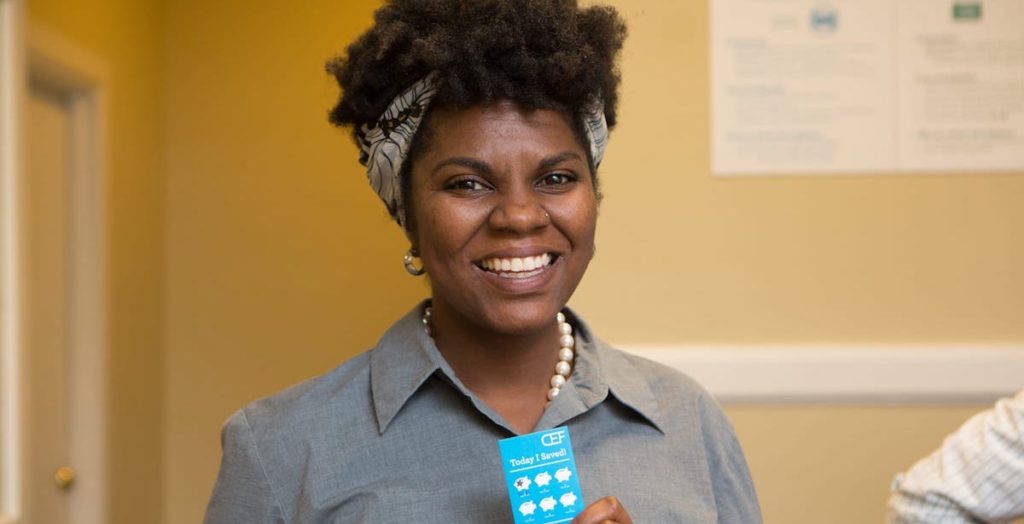

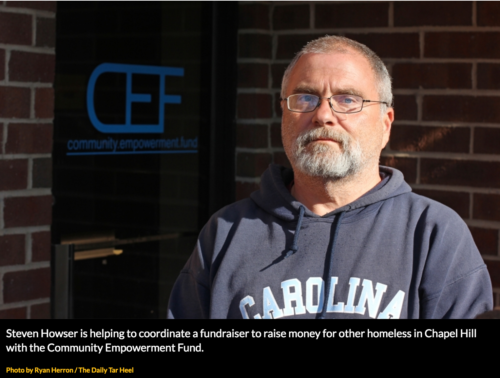

![CEF Spring Graduation Flier [Recovered]](https://communityempowermentfund.org/wp-content/uploads/2017/03/CEF-Spring-Graduation-Flier-Recovered.jpg)


